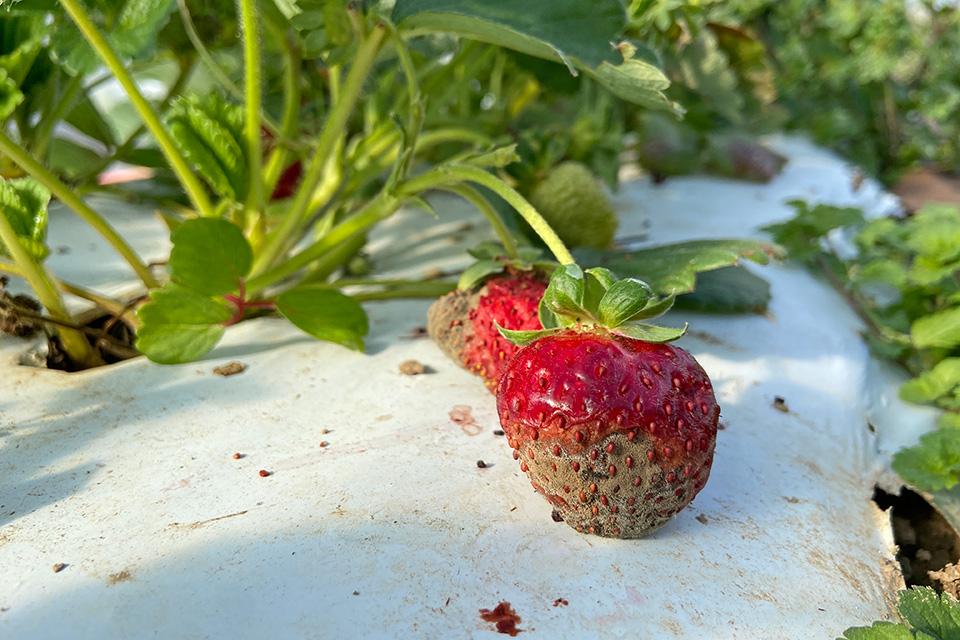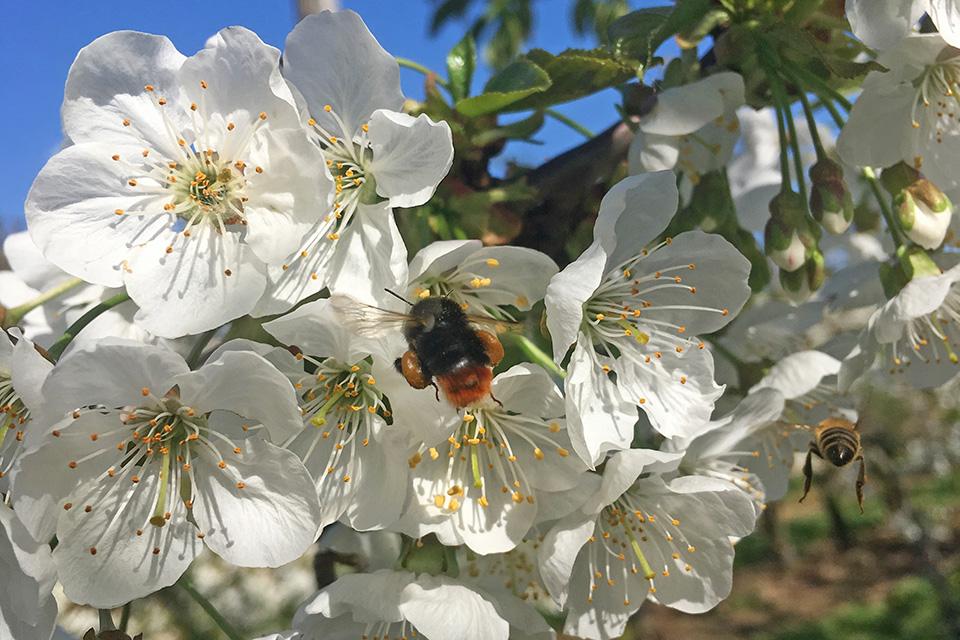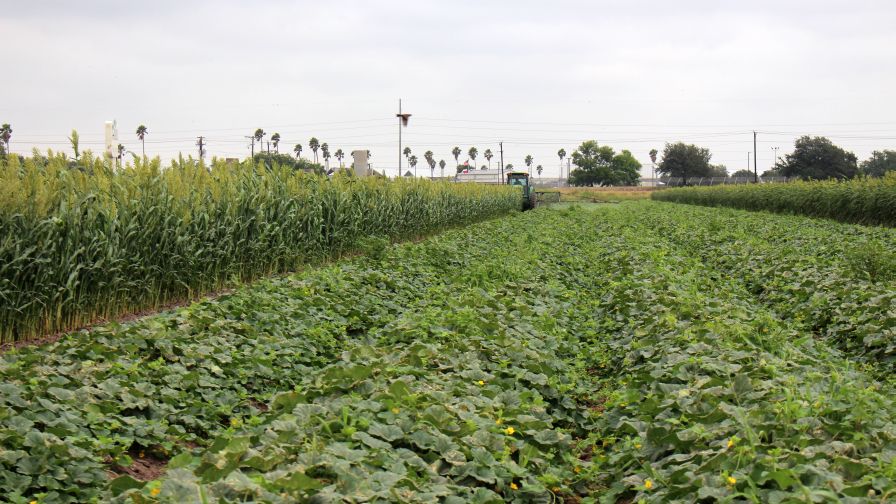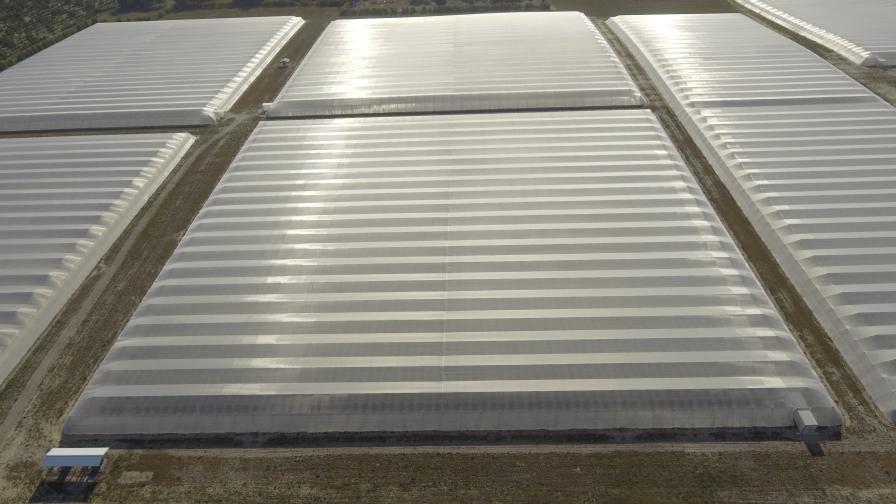Triple B Farms Brings Home Family Fun
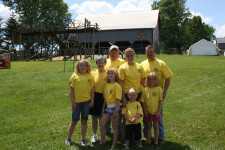
Determination. That is what has made Triple B Farms in Monongahela, PA, what it is today, an agritainment success story. Building a business around entertainment and becoming well versed in growing produce, however, didn’t happen overnight.
Looking for a change after 23 years of working as a metallurgical engineer, Triple B owner Ron Beinlich tried his hand at farming. The operation Ron bought, which is far removed from the main roads extending from the metropolis that is Pittsburgh, began with just a few acres of strawberries. Fast forward to today, with kids running around the playground and crops winding up and down the hills behind them, it is clear he forged his way in the ag world to find multigenerational success.
“We made a lot of mistakes,” says Carolyn Beinlich, Ron’s wife, shaking her head as Ron echoes the wear and tear in her voice. “There were a few lean years there,” explained Ron, “with the drought in the 80s, and the fact that neither of us have a background in farming. I saw a lot of people come and go from agriculture, saying they just couldn’t do it. But you have to stick with it,” he says.
And stick with it they did.
Carolyn and Ron slowly turned 75 soil-drained acres into more than 400, rotating crops including sweet corn, tomatoes, peppers, cucumber, zucchini, and, of course, the ever-popular strawberries, among others.
Away from areas of vegetable and fruit production, the Beinlichs’ son Bill and his wife, Sue, also have a cattle farm — beef, that represents one B in the farm’s name, with the other two Bs being the family name, Beinlich, and the first crop they grew, berries.
Over the years, Ron learned by trial and error how to further utilize the hilly land through the practice of contour farming. He also picked up on soil and water conservation and found out about the benefits of plastic mulch when trying to get the edge on the market with an early crop.
An Entertaining Enterprise
The main direction of their growth, however, was a business built around being an entertainment destination. Although Triple B Farms is only 20 miles from Pittsburgh, Carolyn makes it clear that the city customer is by no means their everyday consumer.
“Our target audience is the family,” she emphasizes, “and they’re coming in for the activities.” Furthermore, Ron adds that it is a simple reality that people will drive for entertainment, so in order to reel them in from far and wide, they had to make their entertainment worth the drive for their customers.
The family regularly participates in the North American Farmers’ Direct Marketing Association events and credits bus tours and conferences with giving them a support system in the ag community and inspiring them to add on to their ever-growing entertainment operation.
Some of the ideas they have put into practice include a play area consisting of tunnels, slides, and other equipment, colorful boards informing kids of fun facts related to agriculture, and a small petting zoo consisting of pygmy goats, peacocks, and chickens.
“Word of mouth has been our best friend,” says Carolyn, a former teacher. “School field trips have been key, as kids come to the farm, enjoy it, and then ask their parents to bring them back.
“Also, the addition of the pumpkin festival, which first took place in 1985, was highly successful.”
Ron agrees, saying, “The pumpkin festival is by far the most popular event we have because of the holiday that surrounds it. It’s pure entertainment! People aren’t coming to the farm because they want a pumpkin; it’s all about the act of going to get it.”
This understanding of the mentality of the consumer expands to their pick-your-own berry operation, as well.
Ron believes pick-your-own customers don’t care about the fruit, but, he explains,“want their kids to get the experience picking produce straight from the ground. You’ll see a whole family take home two baskets of strawberries at most, because it’s not about the berries, it’s about the activity, and that’s a new development. When we first started in the industry, it was a few people taking home large quantities. Now it’s a whole lot of people taking home small quantities.”
Handing Over The Reins
As Ron mentions, the times have changed since he started in the business.Over the years, Ron and Carolyn’s son, Bill, graduated with a degree in agriculture from Penn State University and returned to the farm with new ideas, and a wife, Sue, who had experience in sales and marketing before coming to Triple B.
“At first, we butted heads a little,” admits Ron of his son wanting to change things around a bit upon his return from school, “but then I thought, ‘he’s the one with the degree!’ And I knew I had to hand over the reins.”
Bill’s responsibilities now include planting and crop management as well as overseeing the field workers.
he young couple contributes new and fresh ideas and developed the marketing scheme that has served the farm well.”
As Triple B is hidden behind walls of trees and hindered by winding roads, the family has had to reach out to consumers in the area via several platforms to let them know what’s happening at the farm.
Keeping their ears to the ground for trends like the buy-local movement, the Beinlichs capitalized on the opportunity to emphasize the benefits of locally grown produce and, with the help of Sue, began to advertise their efforts.
Through the use of commercials spreading the word on what crops are ready for picking to the highly populated Facebook page updated regularly by Sue with pictures, polls, recipes, and crop updates, the farm has overcome its less than ideal location to keep consumers coming in droves.
“We just don’t have location, location, location,” says Carolyn, “but we’re hard headed. We would rather stay on the farm and have a market of our own than drive into town and sit by the side of the road.”
To diversify, the Beinlichs offer a fair amount of premium-level produce specifically for wholesale at high-end stores like Giant Eagle Market District and the Pittsburgh Whole Foods store.
They also make it a priority to stock the shelves of the farm market daily.
“We want to make sure we take care of the customer that drives here,” she explains. “What is sold on the farm is our priority.”
And, thankfully, in recent years the family hasn’t been hurting for visitors. This can be partially attributed to the recently popular buy-local movement and an increased consumer concern for sustainability.
Through reinvention and evolution over the years, the Beinlichs have developed into an agricultural force to be reckoned with.
Their understanding of what is important not only to their business, but to themselves as farm owners, the Beinlichs are an example of resilience.
It seems they may have a solid next generation, as well, in Bill and Sue’s four children, Nancy, Natalie, Abby, and Will, to carry on what they’ve learned.
For more informaiton on Triple B’s sustainability practices, go to the next page.
Successful Sustainability
In addition to their other efforts, the Beinlichs took the mission of sustainability seriously. It really wasn’t, however, something they had to change anything to adopt.
“I don’t think we altered our practices a whole lot to be able to say we are a sustainable operation,” says Ron Beinlich, Triple B Farms owner, “because we were already doing more than what consumers were looking for.”
For example, says Ron, an important aspect of sustainability is maintaining soil. When he first purchased the operation and began clearing trees for more room to grow, the newly exposed soils high in organic matter caused him change his ways.
“We set out not only to maintain the state of that rich soil, but improve upon the quality of the old, overworked land,” he explains.
To do this, Ron says he and his son Bill practice minimum tillage with Unverferth’s Zone Tiller.
The Zone Tiller is set to go 15 inches deep, he explains, but it can go deeper. Since the till zone, which is the area where the machine works, is directly under the seed, it allows the roots to go deep to find moisture. The end result is the machine only tills the till zone, not the tire zone.
And, although picturesque, the fields running up and down the hills also serve an important purpose. The practice of contour farming has been huge in using the land Triple B occupies. “This provides erosion control. We’re farming on hills,” he says, so conserving soil and water is everything to us.”




